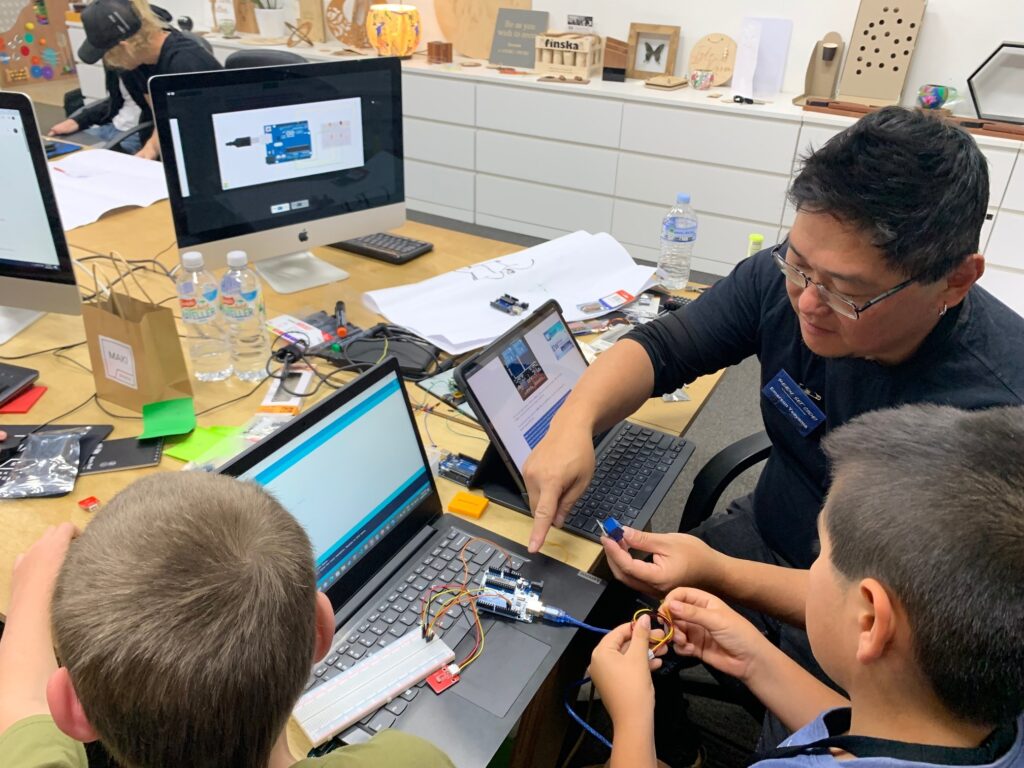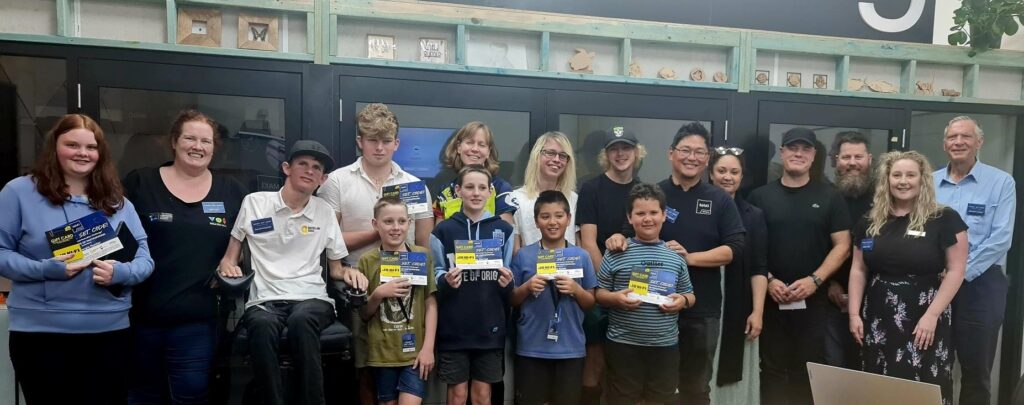
Students from high schools around the region have worked together to design innovative solutions for people with disabilities as part of a Ready, Set Code! event by MAKI Space and CQUniversity.
The tech challenge aimed to give students from Year 7 to Year 12 hands-on experience in working with real people to understand how social innovation can have a positive impact on society.
Dr Cal Devney, from CQUniversity said the workshop was a great way for young innovators to think outside the box.
“Many of the problems that people with disabilities face are things that able-bodied individuals take for granted,” Dr Devney said.
“Some examples of assistive tech solutions include designing a device that will allow a person using a walker to carry a baby or creating an app that identifies wheelchair-friendly pathways and curbs.”
In the first event, held on 30 June, participants worked in teams to engage in ideation, design thinking, programming and prototyping to solve a problem put forward by a person with a disability.
“The participants (aka the innovators) of Ready, Set, Code! had the challenge of designing, building and programming a sensor system that would respond to the environment by turning on a light when it got dark,” Dr Devney said.
“The innovators also had to consider that sometimes the users would want to override the automated light feature on the wheelchair.
“They used an Arduino platform to rapidly prototype (create a model on which something is patterned) their solution and we had the great privilege of having Darren, a person who uses a wheelchair, there to discuss the problem and give feedback on the designs that were being developed.”
The event saw some successful results, according to Dr Devney.
“All but one of the teams came up with functional Arduino solutions that successfully detected darkness and activated a light,” she said.
“To achieve this in the short timeframe that teams were given to design, create and program was a great accomplishment.
“One of our mentors modelled how the Arduino could be programmed to sense different light conditions so that as it got darker, the Arduino activated a second and third light.
Dr Devney said some additional features that teams came up with included having two sets of lights – one which lit up around the wheelchair’s base and ‘headlights’ that would help the user to see the terrain in front of the wheelchair.
“Teams also had to be innovative on how the lighting system could be overridden by Darren and the limitations to movement that he faces,” she said.
“Our panel of judges had a very difficult time choosing between the solutions that were pitched to them.
“A difficulty that they faced in choosing a winning team was that every team focussed on a different aspect to develop to the fullest which made comparing the different and equally amazing solutions very challenging.
“Our judging panel chose to award all the teams for their innovative work with every innovator receiving a prize for their achievements.”

Ready, Set, Code! event inspires young innovators
Dr Devney said participants of Ready, Set, Code! gained many design thinking and social innovation skills.
“Participants of the event gained both an understanding of some of the problems faced by people with disabilities and practical skills they can use to create solutions for those problems,” she said.
“In addition, participants gained entrepreneurial thinking skills, which involve being able to see the world as a series of problems that can be solved and opportunities to develop those solutions.
“They learned communication and presentation skills through listening, questioning and pitching. They gained programming skills, and practise at problem-solving, creativity and innovation.”
Dr Devney said she hoped more students would jump on board for the next event.
“We had 10 students from local Bundaberg schools participating in our first event and we have plans to double that number for our next event,” she said.
“We will be looking for students in Years 7 to 12 who have an interest in STEM and no programming experience is required.”
“Opportunities like these to equip our youth with social awareness and practical 21st Century skills are something we would like to continue to provide to the Bundaberg community so get in touch with MAKI Space if you are interested in hearing more about our next event.”
Find out more about MAKI Space here.





Incredible-what a worthwhile project! We are very proud of the exciting innovations you are establishing!!